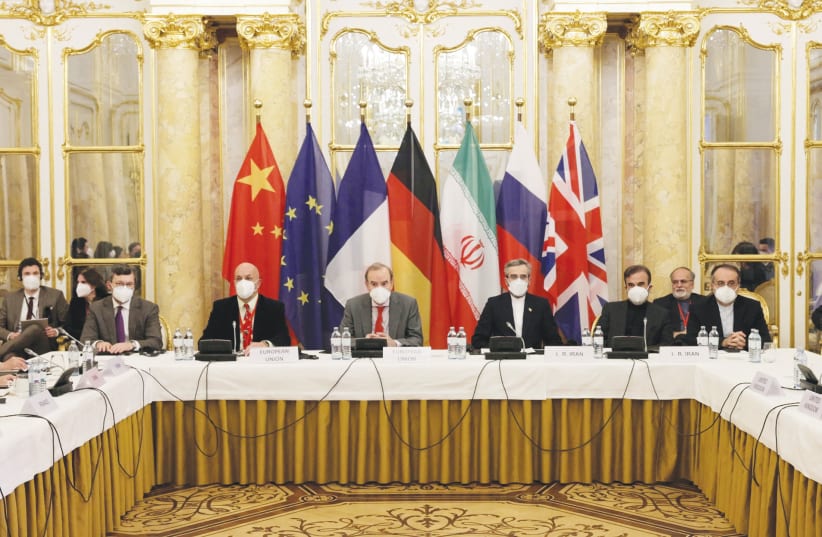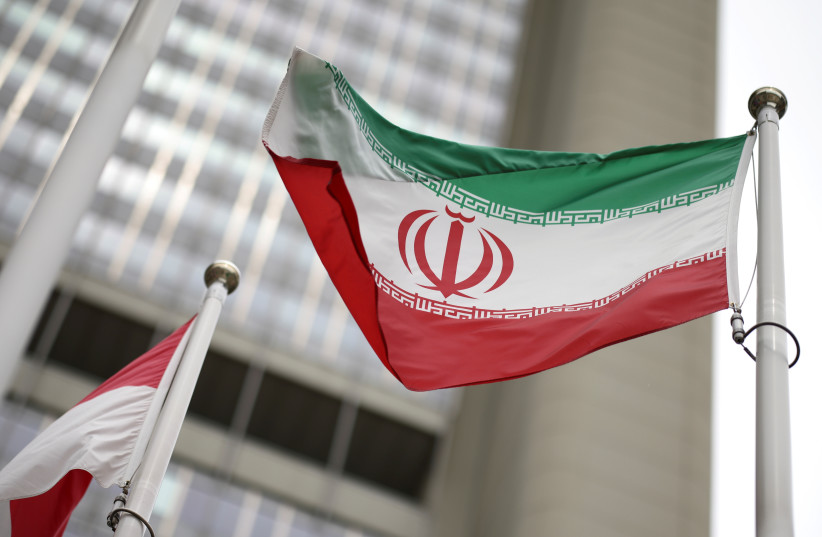Two days before the Iran nuclear talks resumed last November, and after the new Iranian government avoided negotiating for five months, European Union mediator Enrique Mora warned that time was of the essence.
“There is a sense of urgency in all delegations that this negotiation has to be finished in a relatively reasonable period of time,” he said. “Again, I wouldn’t put limits, but we are talking about weeks, not about months.”
Eight weeks later, the message has remained the same from the Western parties to the talks, the US and E3 – France, Germany and the UK.
“There is real urgency, and it’s really now a matter of weeks where we determine whether or not we can return to mutual compliance with the agreement,” US Secretary of State Antony Blinken said last Thursday.
The reason for the urgency is that Iran has far surpassed the limitations of the Joint Comprehensive Plan of Action, the 2015 nuclear deal that world powers are seeking to restore. That agreement restricted uranium enrichment to 3.67% purity, but Iran is enriching to 60%; weapons-grade uranium is 90% enriched. The Islamic Republic has been stockpiling uranium beyond what the JCPOA allows in recent years.
On December 1, two days after the talks to return to the JCPOA resumed in Vienna, Iran announced it was enriching uranium with IR-6 advanced centrifuges at its underground facility in Fordow.
That set the tone for the ensuing weeks. Iran was not going to be making any kind of goodwill or trust-building gestures as the talks went on; it was going to continue advancing its nuclear program as far as it could, while the world powers are reluctant to do anything about it to keep negotiations going.
In the meantime, Iran has been negotiating at a snail’s pace. That the Iranian delegation refuses to sit in the same room as the Americans, requiring the other teams to shuttle back and forth between them, is one public indication of the delay tactics being employed around the negotiating table.
Still, diplomats in the talks have noted some progress in recent days, though not on the core elements of the JCPOA, which are nuclear restrictions and sanctions relief.
Over the weekend, Western diplomats even said Iran was showing greater seriousness in exchanging ideas and letters, while still lamenting how slow things were moving.
Unless Iran changes its pace, a return to the JCPOA will be impossible by mid-February, one Western diplomat said, and the direction in which Iran is headed will likely be clear in the next few weeks.
One matter the Western delegations view as a test case is Iran’s demand for guarantees from Washington. Iran argues that since the US left the JCPOA in 2018, it must provide a guarantee that it won’t do so again. However, under US law, the agreement would not be binding on future presidents unless it is ratified by two-thirds of the Senate, which the JCPOA was not.
If Iran insists on a permanent guarantee for the JCPOA, it could be a sign it is looking for an excuse to continue drawing out the negotiations with no progress. If it is willing to accept other, creative assurances, then it could mean Tehran is serious about the talks.
Russia tried to prod Iran to an interim agreement, NBC News reported on Saturday. But Tehran rejected that option as well, saying it would only return to the full JCPOA. That could be another way to keep the talks going even longer.
The view from Jerusalem is that its Western allies have not set a hard deadline for the talks, and there is a sense that they are nearing the point where it will be too late for the JCPOA to have any relevance.
At the same time, Israeli officials think Iran is intentionally trying to get to that point, to push its nuclear program as far as it can while the talks continue, eking out some gestures to ease the pressure on them.
Iran seems to have little incentive to return quickly to the JCPOA. While dragging its feet in Vienna, Iran held a joint naval exercise with Russia and China and announced a 25-year economic cooperation agreement with China.
Iranian President Ebrahim Raisi met with Russian President Vladimir Putin in Moscow and talked about “increased synergy between our two countries” and “resisting America” – and that was only in the last week.
The longer the US and E3 complain about Iran negotiating too slowly, but are unwilling to do anything about it, the more Iran will take full advantage of the situation.
Nearly two months after the negotiations resumed in Vienna, the question remains: How many more weeks will nuclear talks still be weeks from ending?

